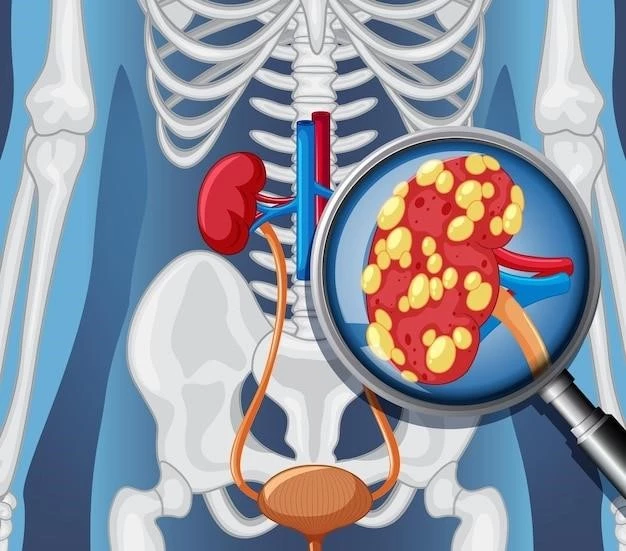Symptoms of BK Virus Nephritis
Initial stages may be asymptomatic. Symptoms can include.
Overview of BK Virus Nephritis
BK virus nephritis is a condition where the BK virus infects the kidney‚ typically affecting transplant recipients. It can lead to renal dysfunction and graft loss. Regular monitoring and prompt intervention are crucial.
Common Symptoms
Common symptoms of BK virus nephritis include blood in the urine‚ flank pain‚ fever‚ and decreased urine output. As the condition progresses‚ it can lead to kidney dysfunction and transplant complications. Early detection is key for effective management.
Treatment Options for BK Virus Nephritis
Including reducing immunosuppression and antiviral therapy.
Medication
Antiviral medications like cidofovir and leflunomide are commonly used to treat BK virus nephritis. Immunosuppression reduction may also be necessary. Regular monitoring is essential to assess treatment response and manage potential side effects.
Therapeutic Interventions
Therapeutic interventions for BK virus nephritis may include intravenous immunoglobulin (IVIG) therapy to boost the immune response against the virus and reduce viral replication. Additionally‚ supportive care such as hydration and close monitoring are essential to manage the condition effectively.
Causes of BK Virus Nephritis
Caused by reactivation of the BK virus due to immunosuppression.
Underlying Factors
Immunosuppression post-transplant is a key underlying factor in BK virus nephritis development due to compromised immune response. Other factors include older age‚ male gender‚ and certain genetic polymorphisms that may influence susceptibility to the infection.
Viral Activation
BK virus activation leading to nephritis is triggered by factors like immunosuppression‚ stress‚ or hormonal changes‚ allowing the virus to multiply and infect the renal cells. Understanding these activation mechanisms is crucial for preventing and managing BK virus nephritis effectively.
Prevention Strategies for BK Virus Nephritis
Focus on managing immunosuppression and maintaining good hygiene.
Immunosuppression Management
Optimizing immunosuppression post-transplant is crucial to prevent BK virus nephritis. Regular monitoring of immunosuppressive medications‚ individualizing treatment‚ and minimizing over-immunosuppression can aid in reducing the risk of viral reactivation‚ thus lowering the chances of developing nephritis.
Hygiene Practices
Implementing strict hygiene practices such as regular handwashing‚ maintaining cleanliness in shared spaces‚ and using personal protective equipment can help prevent the spread of BK virus and reduce the risk of infection‚ especially in healthcare settings and among immunocompromised individuals.

Diagnosis of BK Virus Nephritis
Diagnosis involves laboratory tests and imaging studies.
Laboratory Tests
Laboratory tests to diagnose BK virus nephritis include urine and blood tests to detect viral DNA‚ as well as a kidney biopsy to evaluate tissue damage and presence of the virus. These tests aid in confirming the diagnosis and guiding treatment decisions for patients.
Imaging Studies
Imaging studies like ultrasound‚ CT scans‚ or MRI may be used to assess the kidneys for signs of BK virus nephritis such as swelling or structural changes. These imaging tools provide valuable information to support the diagnosis and monitor the progression of the condition.
Complications of BK Virus Nephritis
Potential renal and systemic complications can arise from BK nephritis.
Renal Complications
BK virus nephritis can lead to complications such as acute kidney injury‚ nephropathy‚ and decline in renal function. Monitoring kidney function regularly and prompt intervention are crucial to prevent further damage and preserve renal health in affected individuals.
Systemic Complications
BK virus nephritis may result in systemic complications such as sepsis‚ uremia‚ and electrolyte imbalances. Close monitoring‚ early recognition‚ and appropriate management of these systemic issues are essential in reducing morbidity and improving outcomes for individuals with BK virus nephritis.
Management of BK Virus Nephritis
Requires a multidisciplinary approach and long-term care.
Multidisciplinary Approach
The management of BK virus nephritis involves a collaborative effort among nephrologists‚ infectious disease specialists‚ transplant surgeons‚ and other healthcare professionals. Coordinated care‚ regular monitoring‚ and communication among the team members are essential to ensure optimal treatment outcomes and patient well-being.
Long-Term Care
Managing BK virus nephritis requires long-term care focusing on regular follow-up appointments‚ monitoring for disease progression‚ adjusting treatment as needed‚ addressing complications‚ and supporting the overall health and well-being of the patient. Close collaboration between healthcare providers and the patient is key to managing the condition effectively over time.
Research Updates on BK Virus Nephritis
Explore ongoing studies and clinical trials for advancements.
Ongoing Studies
Current research focuses on understanding BK virus nephritis pathogenesis‚ developing new treatment strategies‚ and improving diagnostic methods. Ongoing studies aim to enhance patient outcomes and further elucidate the complexities of this condition through innovative research approaches and clinical trials;
Clinical Trials
Clinical trials investigate novel therapies‚ immunomodulatory agents‚ and diagnostic tools for BK virus nephritis. Participation in these trials offers patients access to cutting-edge treatments and contributes valuable data to advance the field’s knowledge and improve patient care outcomes.
